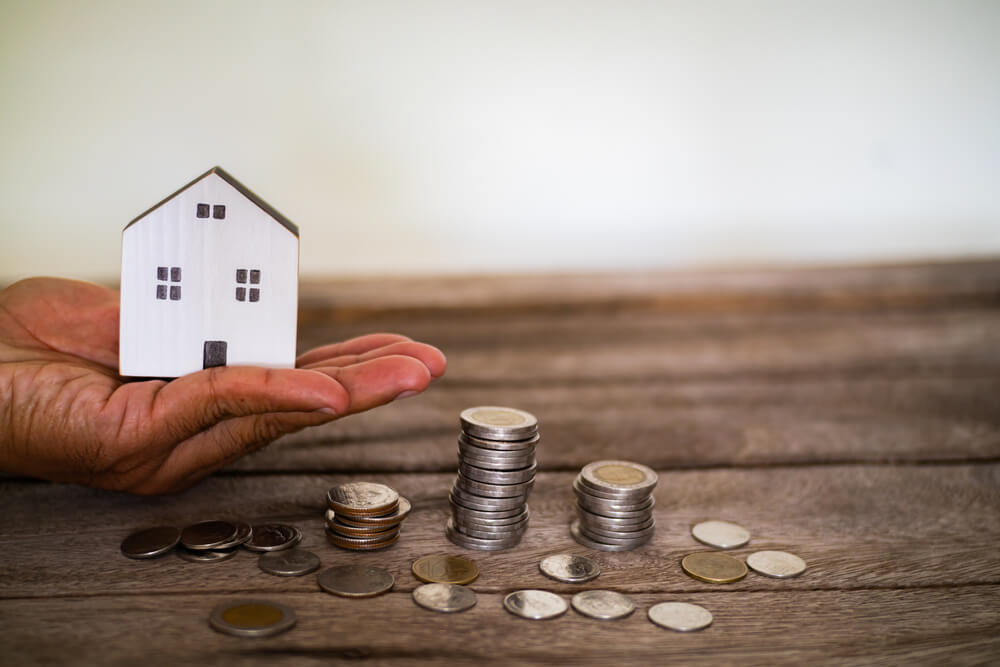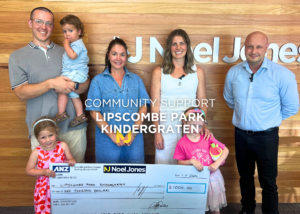Property ownership has been one of the most universal dreams across the world for generations. With the rental prices at all-time highs, it just makes sense to be putting that money into equity for your own property, rather than someone else’s. Unfortunately, the hardest part of climbing the property ladder is often getting on that first rung.
It’s equal parts exciting and overwhelming as you take those first steps to buying a home, and any uncertainty can be intensified by Melbourne’s fiery property market.
While housing prices have jumped 15 per cent in our city this year, there is still ample opportunity for first home buyers, with interest rates at record lows and governments rolling out various incentives.
There are also other proven ways to start your property journey without following the more traditional avenues.
In this article, the team at Noel Jones explores seven tips for buying your first home.
1. Budget and save a deposit
Jokes about giving up avocado toast aside, it pays to set a savings goal early and stay disciplined.
Domain’s most recent First Home Buyer Report reveals it takes about six years for the average first home buyer couple to save a 20 percent deposit for an entry-level house, so the sooner you start the better.
The term ‘budgeting’ often doesn’t sit right with people, as they are unsure of how to properly integrate it into their ongoing spending habits. As a result, it feels like restrictive measures that prevent us from doing the things we love, leaving us to fail in our commitment.
But it doesn’t have to be so hard!
If 20 percent is your goal deposit amount, for a property of, say, $500,000, this would equate to $100,000. This is a considerable and often daunting sum to have to squirrel away, so instead look at it as installments over a given timeframe. This can be calculated one of two ways:
- You have a firm time in the future in mind for you to purchase and move into a property. As a result, you work out the number of weeks, months or even years before that date, and how much you need to save in that time in installments to hit your target. This allows you to see how much of your income you need to place into savings, with enough room to still enjoy yourself.
- You calculate how much you can comfortably live on from your current income, and then realise the amount you can realistically save each week, month and year. This is naturally best suited for those looking to purchase a property as soon as possible.
Make the decision that is best suited to your position and ambitions, as this is what will deliver long term as you take the first steps in buying a home.
2. Understand the costs and how home loans work
It’s crucial to know where the goal posts are as you strive to save your deposit. You should also be able to account for stamp duty, legal fees and other costs that come with buying property and holding a mortgage.
Be sure to research what home loan structure is best for you. A fixed-rate works for those who want interest rates and repayments locked over a particular period, while others prefer a variable interest rate home loan which can change with the market.
There are also new lending rules that have come into effect with aim of curbing the skyrocketing house prices. Lenders are now required to increase the interest rate buffer on mortgage serviceability tests. What does this mean for borrowers? Well, the banks want to know whether you can continue to afford your repayments well into the future, and require a household to be able to meet repayments if their home loan rises three percentage points over their existing rate. This will therefore decrease the borrowing capacity of many eager first time buyers.

3. Tap into government support
One of the best tips for buying your first home is to review the selection of government support options and incentives available. First home buyers may be eligible for the federal government’s First Home Loan Deposit Scheme, the Victorian Homebuyer Fund or various other stamp duty concessions or incentives.
Capitalising on these schemes could help you get a foot in the door earlier and save you thousands of dollars.
4. Research where you’d like to live
When you’re looking for a new home, it’s important to take your time and do your research. You may love the suburb you grew up in or the trendy area your friend lives in, but you need to ensure it is the best fit for this stage of your property journey.
Begin by figuring out what it is you are looking for in both a home and a neighbourhood. Do you need a lot of space? A backyard? A certain number of bedrooms or bathrooms? What budget do you have available? Make a list of what’s important to you, and use that as a starting point for your research.
Research potential suburbs and explore their connections to transport, shops and schools. Reach out to real estate agents in the local area for advice. Fortunately, with the power of the internet, you can scope the available properties in your target areas at speed from the comfort of your own home. Noel Jones’s real estate property guide, for example, proves especially helpful to our clients.
Once you’ve narrowed down your list of potential places to live, it’s a good idea to visit them in person. This will give you a better idea of what each area is like, and you can get a feel for what would be the best fit for you.
5. Rentvest
The suburb you love may be out of reach, but that doesn’t mean you need to compromise your lifestyle completely.
Rentvesting is where you buy an investment property to rent out in an area you may not want to live, as you rent in a location you like.
While this can prove a very lucrative avenue, be sure to understand the financial obligations and responsibilities that come with rentvesting. You are becoming a landlord, after all, and that property is an income-generating asset. You will likely have to invest in getting it up to the necessary standards, cover the costs of property management, pay tax on all earnings, and should you sell the property for a profit, you may also be required to pay capital gains. As such, speak with your accountant or financial advisor if you do not have a firm understanding of your financial position.

6. Pool your resources
Who says you have to take the first steps to buying a home by yourself? Joining forces with a sibling, partner or friend who can contribute equally to a deposit and mortgage repayment could help boost your borrowing power. For example, should you and your significant other rent separate houses, it may prove more cost-effective to move in together and place that ongoing outflow of cash into the equity of the property.
If you are a married or de facto couple, then the most common ownership arrangement will be known as ‘joint tenants’, in which each party owns an equal, 50/50 share of the property. In addition, should one party pass away, the other will automatically receive their share.
Alternatively, there is also the option for ‘tenants in common’, which is more popular with friends and business partners. The ownership split is customised and there is no right of survivorship.
While there is power in numbers, it’s vital you seek legal advice to ensure the arrangement protects both parties.
7. Lastly, be patient and enjoy the experience
Purchasing your first home marks one of life’s biggest milestones, so be proud of your hard work to get here. Granted, it is somewhat more difficult to enter the market than previous generations, but it is not impossible. Be sure to find a balance where the steps to buying your first home doesn’t consume or restrict how you enjoy your life, yet helps you to stockpile enough of your resources to make an intelligent investment for your future.
Learn More About the First Steps to Buying a Home with the Experts Noel Jones
Doing all of this research and calculating yourself can be extremely overwhelming. Sometimes, it pays to have someone in your corner who knows the industry, but also takes the time to understand your situation and requirements to offer tailored tips and steps on buying your first home.
At Noel Jones, we have over 40 years of experience helping clients throughout Melbourne’s eastern suburbs and beyond find the perfect homes, regardless of where they are in their property ownership journey, and we would be more than happy to help you, as well.
For more advice and guidance on finding your first home, contact the experts at Noel Jones today. We can be reached by calling +61 3 8813 3208, by sending an email to [email protected], or by visiting us at our Melbourne offices, located at Level 1, 554 Whitehorse Road, Mitcham, Victoria, Australia 3132. We look forward to working with you on these first steps on buying a home.





